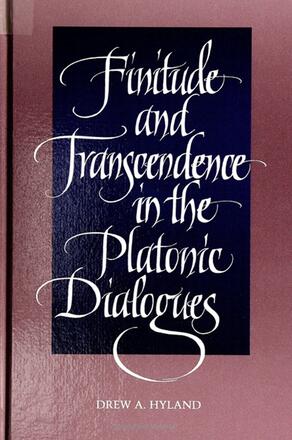
Finitude and Transcendence in the Platonic Dialogues
Alternative formats available from:
Description
This book explains how to read Plato, emphasizing the philosophic importance of the dramatic aspects of the dialogues, and showing that Plato is an ironic thinker and that his irony is deeply rooted in his philosophy.
Drew A. Hyland is Charles A. Dana Professor of Philosophy at Trinity College.
Reviews
"Professor Hyland's thesis is that finitude, and the response to finitude that he calls 'finite transcendence,' is an informing theme of the Platonic dialogues. This important observation is confirmed in the course of seven chapters that treat distinct yet related features of some of the most familiar dialogues. The first chapter's discussion of the significance of place in the dialogues is provocative and original, and immediately engages the reader's interest. Subsequent chapters fill out the theme of finitude in a way that prepares the reader to be thoroughly persuaded by Hyland's discussion of his striking claim that Heidegger failed to provide a Heideggerian interpretation of Plato. Indeed, the success of Chapter 6—which I take to be the rhetorical culmination of the book—is a measure of the success of the book as a whole. Professor Hyland is a distinguished teacher, and his book will appeal to the next generation of scholars—today's graduate and undergraduate students—as well as to his peers in the academy. " —Jacob A. Howland, University of Tulsa
"Hyland argues in a clear and spirited way for an interpretive stance toward Plato that stresses the form and irony of the dialogues and the view these imply of the human condition. The form and irony of the dialogues are generally neglected in Plato scholarship, for the most part because our mainstream tradition of philosophical analysis does not prepare us to read in a way that takes context as seriously as concepts and arguments. Often, however, even those who take dialogue form as a pathway to the content of this or that particular text neglect the substantive significance, in its various aspects, of dialogue form itself. There are particularly interesting discussions of the structure of irony in the dialogues, of affinities of the view of the human condition in the dialogues with those to be found in tragedy and comedy, and of thematic analogies, missed by Heidegger himself, between his interpretation of aletheia and the way meaning emerges for a sensitive reader of the dialogues. " — Mitchell Miller, Vassar College